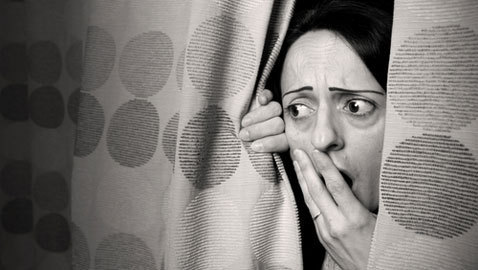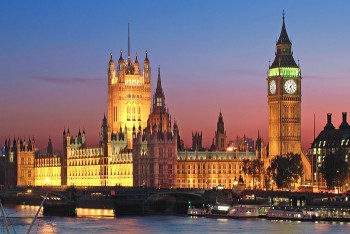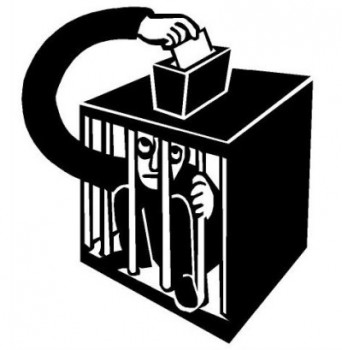
The negative assumption behind the dominant attitude towards the freedom-to-run-your-own-life is that we are incapable of doing so.
This belief has taken on many forms over the centuries, but it makes little difference whether one believes from “religious” conviction that human beings are born sinners or whether one’s “scientific” view of the world sees an inherently brutal and selfish human nature, which renders us unable to arrange ourselves in a peaceful and constructive way.
Despite convincing counter-arguments which explain that co-operation and not competition is in fact the key to successful evolution, the negative view is still dominant today.
Even those who argue that there is no such thing as human nature at all, and that everything about us is conditioned by our experienced cultural environment, are essentially adopting the same position. How can humans be expected to live naturally if we have no nature? How can we expect to survive without some kind of hierarchical structure if we have to be taught to be kind to each other, to co-exist in communities?

What is the meaning of a freedom-to-live-as-we-wish if we have a natural wish to do bad things, or if we have no natural wish to do anything at all?
It is this void created by the denial of the essential goodness of humanity that leads to the denial of our freedom. Freedom is regarded as something to be feared, rather than to be treasured or fought for. Limited, specific freedoms – civil liberties, freedoms-from – are tolerated because they are known, controllable factors.
The idea of complete freedom, a freedom-to-act-as-we-see-fit, however, strikes dread into the heart of those with a negative or non-existent conception of human nature. Some might imagine dark, devilish forces being released from the uncontrolled human spirit – violent behaviour, selfishness, the domination of the weak, and the meek, by the strong and self-assertive.
But why? Why should that be the case? Have we human beings so internalised the excuses for our enslavement offered by those who would rule us that we now believe them to be self-evidently true?

For the modern mind, the concept of collective freedom sounds like an oxymoron. There seems to be an opposition between an idea of freedom founded on the individual and a level of collectivity to which that individual must apparently in some way be subordinate.
The solution to this apparent opposition is presented as a “balance”. According to this view, freedom, conceived of in terms of the individual, has to be weighed against collective interests. The “balance” consists of restricting the freedom of the individual in the interests of a collective well-being. The two-dimensional formulation of where to “strike the balance” between the two extremes – individual interests and collective interests – is treated as the base line for political positioning on the issues surrounding freedom (or, in fact, the thinner entity of liberty).
Libertarians will tend towards the individual-first end of this scale, whereas authoritarians – claiming a commitment to collective well-being – will tend towards the other. Others will hover around the middle, unsure as to what extent either should take precedence.
Needless to say, this way of looking at the issue is based on serious misunderstandings and creates whole new labyrinths of confusion for those who take it as their starting point.
At the heart of it is the error which we have already encountered, of regarding the individual as an entity solely concerned with him or herself, and without any innate sense of the need for social co-operation.
It is only if one regards individual interests in this way, as being fundamentally in opposition to those of the collectivity, that one has to start thinking of how to restrict the freedom of the individual in order to protect the interests of the collectivity. Likewise, it is only if one regards the collectivity as fundamentally opposed to the freedom of the individual that one has to think in terms of restricting collective interests in relation to those of the individual.
The notion of an opposition between individual and collectivity, and the need to strike a “balance” between the two, necessarily involves a weakening of both, for misconceived reasons.
The truth of the matter is that individuality and collectivity are merely two aspects of the same thing. Individuals are innately social and form part of a social organism. That social organism, the collectivity, is itself composed of individuals.
If people often wrongly regard the idea of a collectivity as being fundamentally opposed to individual freedom, it is no doubt because of the way the notion has been abused.
The problem arises when some artificial construct is held up as representing a human collectivity or even as being the human collectivity, although it is not formed and steered freely in the natural way. We are basically talking here about the state, an entity of any size (up to and including the potential existence of a global state) which is claimed by its supporters to enshrine the common interest of the human collectivity it embraces.
It clearly does nothing of the sort – indeed, its real function is to suppress the organic freedom of the collectivity in favour of structures and strategies reflecting and defending its own interests. And what are its own interests? Even if we accept the idea of a theoretical state completely free of corruption by private agendas (which is in fact impossible, as we will see), the interests of the state are not identical with those of the collectivity.
By virtue of its very existence, it sets itself, and its role, apart from that of the collectivity. Its recognition of itself as a legitimate representation of that collectivity, and its demand that those under its control also recognise that legitimacy, becomes, itself, its primary raison d’être.
Taking as its starting-point the assumption that it is itself legitimate (as it must, if it is to exist) and a genuine incarnation of the collectivity, it immediately distances itself from the actual interests of the collectivity. In the eyes of the state, it is the collectivity, therefore the real collectivity, outside of the state, cannot exist!
Worse than that, the real collectivity, when it manifests itself in some way, is not only unrecognised for what it is by the state, but regarded as an enemy of the state and a threat to its legitimacy. This is obviously true – the re-emergence of the real collectivity does represent a threat to the state. But the problem is that the state does not depict the situation in these terms, convinced as it must be that it itself is the incarnation of the real collectivity.
Instead, it paints the emergence of the real collectivity in terms of a problem – disorder, subversion, instability and so on. The state’s point of view, and its interests, therefore become still further divorced from those of the genuine collectivity.
If this point of view was only held by those controlling the state this would hardly matter, but unfortunately it tends to be much more widely shared. The claim that the state is the same as the real collectivity is a lie and as such its intention is to deceive.
The victims of this deceit will often include people with a strong innate belief in collectivity, in the need for individuals to work together for the common good. Having been tricked into thinking that the state represents that collectivity, they project their commitment to collective well-being on to the state.
From there onwards, it is a slippery slope. They accept that the state, in the interests of the common good, has to achieve some kind of “balance” with individual freedom (as that freedom can never be expressed through the blocked, above-down structures of a state).
They accept that the state has a right, or even a duty, to repress manifestations of what is in fact genuine collectivity in order to protect the fake collective good that it purports to incarnate. They accept the state’s conflation of good and bad with legal and illegal, accept its definition of responsibility as obedience to its laws.
They accept the state’s claim that its role is essential, that the idea of an innate human tendency to free co-operation is absurd and that human society would collapse into murderous chaos without the firm hand of the state in charge.
The motivation for this acceptance of the state’s claims is essentially well-meaning, arising as it does from a sense of the importance of a collective level of human existence. But hand-in-hand with these good intentions, comes a fatal degree of gullibility. The whole system of democracy behind which the modern state hides itself is designed to retain the allegiance of such gullible individuals.
The flimsiest and most transparent illusion of power somehow resting in the hands of the population seems to be enough to fool them. Perhaps, in truth, they have to believe that they live in a democracy so that they can continue to believe in the legitimacy of the state. They have to believe in the state because, in their minds, the state represents the collective level of human existence which they know is essential for the common good.
From their perspective, not only is it irresponsible to fundamentally challenge the existence of the state but even selfish – for they can only see opposition to what they regard as a genuine incarnation of collectivity as stemming from anti-social individualism.
These people, these victims of the state’s self-justifying deceit, might therefore, on some level, feel obliged to internally censor, to block out, the knowledge that democracy is a sham, as the collapse of their faith in the legitimacy of the state would leave such a void in their understanding of the world.
(This article is taken from my book Forms of Freedom, published by Winter Oak)




Leave a Reply